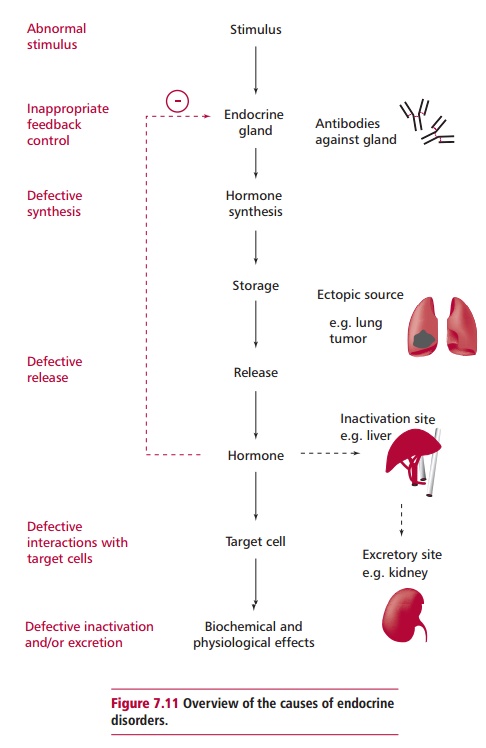Chapter: Biology of Disease: Disorders of the Endocrine System
Causes of Endocrine Disorders
CAUSES OF ENDOCRINE DISORDERS
Endocrine disorders arise because a disruption to the
endocrine system causes decreased (hypofunction) or increased (hyperfunction)
hormonal activity or resistance to hormone action. There may be defects in
synthesis of the hormone due to an inherited deficiency of an enzyme required
for its synthesis. Inappropriate stimuli may impair the release of the hormone
or certain drugs may stimulate hormone release. Defects in the negative
feedback mechanism may cause abnormal hormone secretion. Faulty inactivation or
excretion of hormones in liver or renal diseases respectively can increase
hormone levels. Excessive hormone secretion can occur ectopically from a
nonendocrine source, such as a tumor. Even if correctly synthesized and
released, the target tissues may not recognize the hormone because of a lack of
receptors or because the receptors themselves are nonfunctional. Disorders will
also occur if the target cells do recognize the hormone but there is a defect
in the secondary messenger system responsible for converting the hormonal
signal to a physiological action.
In some autoimmune diseases , antibodies are produced
that stimulate or destroy endocrine glands, as in Grave’s disease and
autoimmune thyroiditis respectively. The various causes underlying endocrine
disorders are summarized in Figure 7.11.
A considerable number of endocrine disorders have been described including
disorders associated with the pituitary, thyroid, pancreas, adrenal glands and
the reproductive systems.

Related Topics